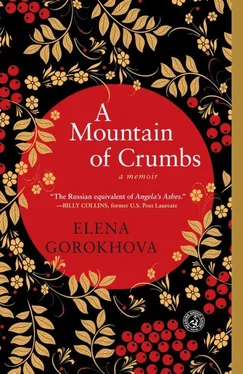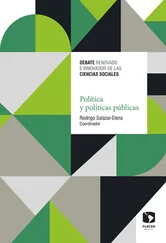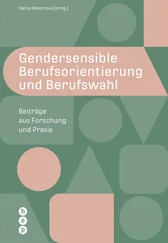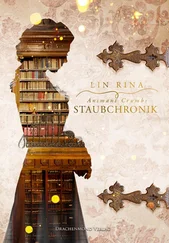“Nu, nu,” says Boris, reaching across the table and covering my hand with his, benevolently granting me the right to be angry. “All I wanted to say is congratulations.” He grasps my ring finger, leans across the table, and touches it with his lips. “Congratulations and best wishes for a happy life and healthy children,” he says, the drunken words, like wet laundry, tangled in his mouth. He lets my finger go, reaches for the cognac bottle, still half full, then puts it back. “But they will never see Leningrad, your children,” he says. “No Hermitage or white nights. No bridges, no Kirov Theatre.”
Strangely, I’m sober enough not to get involved in a conversation about children. “Borya,” I say and lean across the table to get closer, “why are you here?”
He looks down and stares into his empty glass. For a few moments, it seems that he may answer my question, that he may stop lecturing about collectives, about the Hermitage and the Kirov. It seems he may finally admit that the August in Novy Svet, with its unfailing sun and turquoise light, has burned a mark into his soul, just as it has into mine.
Then his old, all-knowing face is back. “How about some chocolate?” he offers. “You must have chocolate before your wedding.”
He waves at the waiter, who unhurriedly reappears with a bar of chocolate peeking out of its foil wrapping, displayed on a serving dish as if it were an exotic cake. I get up as the waiter scurries over with a bill, which, I’m certain, contains things we didn’t order. But Boris, of course, is above doing the itemizing and the addition, something they would stoop to only in the money-obsessed West, which doesn’t know how to party or how to love. I rewrap the chocolate bar and take it with me because I don’t want the greedy waiter to have that, too.
We go out onto Nevsky. I am not sure what time it is, but it seems late, and we walk pointlessly along the canal, where the black water licks at the walls of the embankment. Icy wind whips in from the Neva and blows the fog out of my head. We walk past the Kirov, past the Theatre Square lampposts, their glow nestled in the lace of wrought iron. The last Intourist buses are pulling out of the square. Their passengers are on the way back to their hotels after a day in our museums and former churches, where guides instruct them to stay together, as if these uninhibited people in leather shoes could somehow be mistaken for one of us.
It is ironic, I think, that I’m walking with Boris around Leningrad now, two weeks before my marriage to someone else. This is what I’ve wanted to do since that August in the Crimea—dazzle him with Leningrad’s baroque balconies and marble statues and benches in the shade of linden trees; unfold before him the magic rug of avenues beaming out from the Neva toward the center of Nevsky and sparkling with the gold thread of spire needles. Parade in front of his eyes our fountains and our Bronze Horseman, our pearly domes of light-blue cathedrals and our wrought-iron fences sheltering the silent gardens where Pushkin composed poetry.
And although it isn’t beautiful now, on a freezing March night, when most windows are extinguished and the sidewalk is a porridge of dirty snow, I wonder if Boris is right and I am making a mistake. What city on earth can possibly trump Leningrad? I’m leaving a place people from all over the world come to see from the high-perched seats of their Intourist buses. I’m leaving the only place I know.
We stop on the corner to let a streetcar clang by, and Boris puts his arms around me. He holds me close, my face in his wool scarf, and we stand like this for a minute. It is dangerous to be so close to him, especially when we’ve just mixed champagne and cognac with Stalin’s wine, especially when this nostalgic walk has stirred up some sentimental questions in my head. Just as he starts to breathe into my ear, I wiggle out of his arms. “I have to go home,” I say, shaking my head as if to shake him off for good. “I’m glad you came to say good-bye.”
He looks at me, his eyes still a little glassy, trying to understand what has just happened. “Who is this amerikanets, anyway?” he asks.
“It doesn’t matter,” I say. “Just a nice guy. I have to go.”
His eyes are now focused and dark. He runs his fingers through my hair and steps back. “Good luck, silly girl,” he says, “in your America.”
Then he walks to the middle of the intersection to get me a cab. When a car appears, he flags it down with a V sign—the sign for double fare—and the taxi obediently stops where he’s standing. Boris’s figure is etched against the light green car—shoulders leaning forward, hair tossed by a wet, briny breeze.
I say good-bye and kiss him on the cheek. His cheek is stubbly and prickles mine, but for a few moments I stay pressed to his face. Then I give him a last kiss on the lips, salty and raw—the taste of the Black Sea, the taste of this windy night.
ROBERT ARRIVES ON MARCH 24. They detain him at the airport, but only to turn the pockets of his parka inside out and to spend a half-hour leafing through his address book. My phone number, I’m certain, is now registered at the Interior Ministry, but then, considering my English-speaking past, it has probably been in their files all along.
To meet Robert we arrive at the airport in a Volga that belongs to Marina’s friend Grigorii Isaakovich, Gris for short, who is almost bald and much older than Marina. After we wait for an hour, we see Robert’s head bobbing above the barrier that separates the Soviet Union from the West. He gives the glass door a push and crosses over to our side of the world. “Svolochi,” he mutters in Russian, zipping up his jacket—bastards. He doesn’t need to say anything else; we all know who the svolochi are.
I’m glad Robert’s mind is still on our zealous border guards, so I don’t have to think how to greet my husband-to-be, who has just flown from the other side of the world for our wedding. He shakes his head as if he were ridding himself of a bad dream as I smile an apologetic smile, although I wasn’t the one who demanded, or frisked, or intimidated; I wasn’t the one who made him reach for the Russian words we don’t use in the presence of my mother.
“Here, this will get you into a better mood,” says Gris, back in the car, as he pours champagne into four mismatched teacups he brought from home. “Here is a toast: to the two of you and to your life together. A better life.” We raise the teacups and drink the syrupy champagne, so cold the bubbles feel like needles of ice and make me numb.
SINCE ROBERT AND I are getting married in two days, we are allowed to stay in the apartment that belongs to my older half-sister Galya, my father’s daughter. It is in a new district an hour away from the center, a cluster of tall, dirty-white buildings with low ceilings, called Khrushchevki, built during Khrushchev’s reign, around 1960. The apartment is a co-op, and my father was able to buy it because he had connections. Galya is the only person I know who owns the place where she lives.
For the two weeks of Robert’s stay, Galya has agreed to move in with a friend, but not without the silent comment of compressed lips and a raised eyebrow. Her sentiments are shared by my mother and my aunt Muza, who arrived from Stankovo a week earlier. They all sit in our kitchen, pointing out how inappropriate it is for two people to live in one apartment prior to the moment the state pronounces them officially married. “You should’ve stayed here until the day after tomorrow,” says Aunt Muza in the soft, patient voice of a pedagogue, trying to teach me a belated lesson. In response, my mother throws up her arms, demonstrating that it is futile to fight against the decadent morals of the rotting West.
Читать дальше












